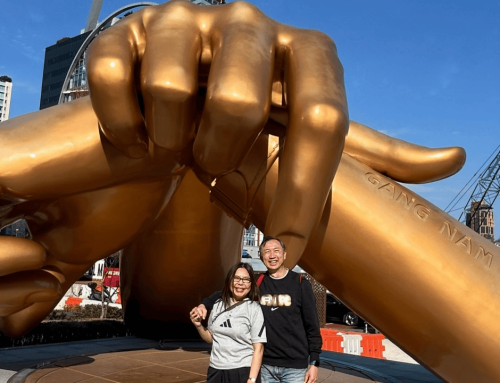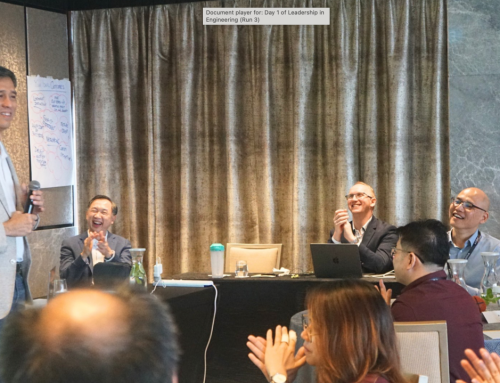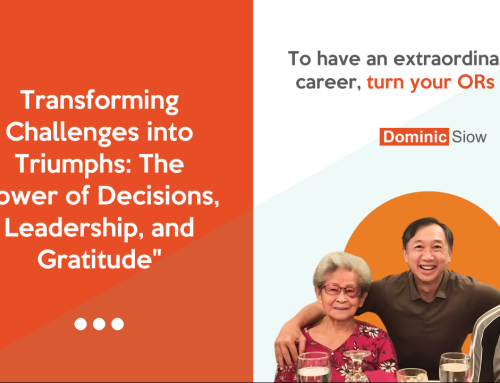Trust is the foundation of any relationship, be it personal or professional. The concept of trust is abstract in itself but the emotion that goes with it is very real—we all know it, we’ve all felt it, yet it’s difficult to describe. Whether we see others in a negative or positive light depends on how much we trust them , if at all.
The act of trusting is not tangible; it’s not something you actually give to another person. The way I see it, trust is both an emotion and a decision. It’s kind of like feeling a buildup of confidence in another person, and then deciding to trust them.
As a social construct, trust involves a person’s willingness to rely on another person’s actions. It’s when we feel secure enough to put faith and belief in someone else’s assessment of a situation. In an organisational setting, building trust is the first step to learning how to engage a team at work.
This rush of introspection on trust comes from a fond memory of a coaching session I did last year. There’s this particular individual who was having a challenging time interacting with a member of their team. Once again, I’m inspired to share that enlightening discussion with you.
He who trusts abandons all control over the acts performed by the trusted.
We live in a digital era where technology is continually redefining the way people interact with one another. Ours is a reality where dynamics between individuals are ever-transforming, even global relations are rapidly changing.
In this context, it’s no wonder trusting is becoming even more of a challenge than it generally is. The ‘trustor’ can only expect results; they really can’t be sure what comes out of the actions of the ‘trusted.’
In a sense, we entrust a part of our future to someone else when we trust, and then we can only hope for the best. The hard part, perhaps, is not knowing for sure if the person trusted will fail us or not. Often, when the person trusted does not behave as expected, mistrust creeps in and, if unchecked this could lead to a complete breakdown of trust.
The same things can be said of professional relationships—between employers and employees, and among the people within teams. The more engaged we are in what we do, the more effective we become in our work. But in order to deepen collaboration at the workplace, we must first build trust in ourselves and the people we work with.
To connect with others is to embark on a journey of self-discovery.
Through my 20’s I indulged in personal development, mostly because I was a bit insecure as a boy. I decided then to seek out the answers and get the tools to help me connect better with others. I guess you could say that was when I started harnessing emotional intelligence as a valuable resource for personal and professional growth.
I learned many helpful lessons in my youth, and now having the beautiful gift of hindsight, I can truly appreciate the value of my learnings. I’ve come to understand that that these ‘skills’ I acquired, these ‘strategies’ I developed, were simply helping me see the most important person in my life: Me!
I don’t mean to come off as self-centred or narcissistic, rather, I’m coming from a place of appreciation. I truly believe that the moment you begin to accept who you are—in all your greatness and imperfections—you learn to let go of the need for acceptance and judgement from others.
When we allow people to see and sense who we really and truly are, we arrive at a place where judgement does not exist. In that act of vulnerability, we become open to our personal capacity to lead, to coach, by seeing things through the lens of empathy.
Trust is empowering— it enables a sense of community where one is for all and all is for one.
While words sometimes fail when it comes to defining what it means to trust, we just know when it’s there, we feel its presence. I know of many organisations where team members openly trust their managers. They have a belief that their leader is trustworthy—honest, dependable, even wise.
When you are this kind of leader, people feel safe with you, they allow themselves to be vulnerable and speak freely around you. In a workplace where a culture of trust exists, people not only feel secure, they feel that they’re genuinely cared for.
Funny thing about trust, the more of it you give yourself, the more of it you get from others. Your confidence gets a boost when you know you’re being trusted. That’s when we become more invested in our personal relationships, our work, our co-workers, even our entire organisation.
With trust, we begin to aspire for more cohesion; we learn to see things in perspective; we begin to align and rally behind a shared vision. If you want to create an even greater cohesion in your workplace, go to our Transform page to know more about developing empowered, resilient people.
“The only difference between people who have a sense of worthiness and those who don’t is BELIEF. The people who have a strong sense of love and belonging BELIEVE they are worthy of love and belonging.” – Brene Brown
Our personal fulfilment and professional success greatly depend on our ability to command our emotions and master our thoughts. When we learn how to influence our own emotions, we gain the skills to relate with one another more effectively. Only by being true to ourselves can we guide others to a place of authenticity—as a leader of influence, not of authority.
Trust yourself, and you begin earning the trust of your team. Trust your team, and you become a great advisor. Trust in yourself and in your team, and you become a GREAT LEADER! The success of your organisation depends on your people’s level of collaboration. And true collaboration is born of trust, fueled by respect, and sustained by influence.
During that coaching session a year ago, it became clear to me why trust is the most important feeling you can experience in any relationship. It was a revelation to me, a sort of breakthrough. I’d love to continue this evolution of thought about trust by posing these questions to you. Perhaps you can share your answers in the comments below, so we may all be inspired by your wisdom.
1) What is trust?
2) What does Trust mean to you?
3) How do you know someone trusts you?
4) How do you know when you feel trusted by others?
5) Do you trust yourself?
With trust and gratitude,
Andrew Davey







